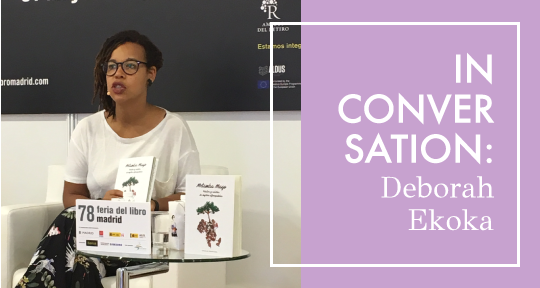Today on the blog, podcast editor Layla Benitez-James draws us into the vibrant but seldom-discussed community of Black writers in Spain. In this essay-interview hybrid, she introduces us to two booksellers working to amplify the voices and and experiences of black Spanish writers.
In the past year, I have interviewed three of the panelists from the 2018 Tampa AWP panel sponsored by ALTA, “Translating Poetry, Translating Blackness,” for the Asymptote podcast: Lawrence Schimel, John Keene and, Aaron Coleman. My last interview with Coleman gave me a quote which has been rewritten at the beginning of each new journal I’ve started since December as it got at something that I have often felt but never expressed so well: literary translation is a tool to make more vivid the relationships between Afro-descendent people in the Americas and around the world.
I was reminded of the first time I read Tram 83 by Fiston Mwanza Mujila and Americanah by Chimamanda Ngozi Adichie. Of course, nothing overlapped with my life exactly, but there was this kind of constant shock and pleasure at recognizing pieces of my identity described by people from places I had never been, a sense of belonging and kinship.
Beyond dictionaries and historical reference works, in my latest projects I have relied heavily on community to understand the context of the text. I moved to Spain in 2014 to work on translation and improve my Spanish. I had fallen in love with the practice after a translation workshop at the University of Houston and started translating the work of Madrid-born and based poet Óscar Curieses. After a teaching placement in the city of Murcia flung me much farther south than I had originally planned, I began to find incredible Murcian poets, like Cristina Morano, Bea Mirales, José Daniel Espejo, and José Óscar López, whose work I wanted to bring into English.


